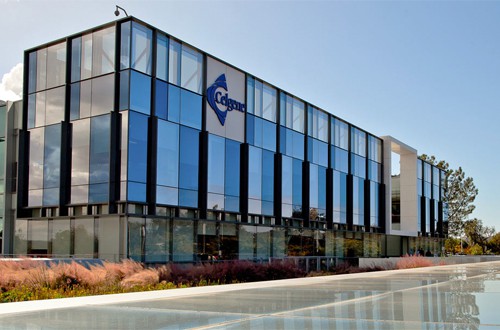
Celgene has agreed to acquire the 90% of CAR-T specialist Juno Therapeutics it doesn’t already own in a $9bn deal that, at a stroke, makes it a big player in cell-based cancer immunotherapy.
Celgene is paying $87 per share in cash for Juno, confirming rumours of a takeover which surfaced last week, and says it expects the merger to complete before the end of March.
The purchase gives it rights to Juno’s lead CAR-T candidate JCAR017 (lisocabtagene maraleucel), which is in early-stage testing for relapsed and/or refractory diffuse large B-cell lymphoma (DLBCL) and according to Celgene could become a $3bn product if approved in multiple blood cancer indications.
If that prediction comes true, the price tag for Juno looks like a bargain. Celgene says it is hoping for a 2019 launch for JCAR017 and a rapid take-up in sales, although it said the deal would peg back 2018 earnings and not be accretive until 2020.
It’s a big turnaround for Juno which last year was forced to abandon its then lead CAR-T JCAR015 on safety concerns, but now says JCAR015 is a potential best-in-class product. The company is vying to become the third commercial player in CAR-T after Novartis and Kite Pharma – acquired by Gilead Sciences in a $12bn deal last year – picked up approvals for the first two products in the category.
Celgene chief executive Mark Alles remarked that “Juno’s advanced cellular immunotherapy portfolio and research capabilities strengthen Celgene’s global leadership in haematology and add new drivers for growth beyond 2020”.
Celgene is already a big player in blood cancers and haematology with Revlimid (lenalidomide), Pomalyst (pomalidomide) and Thalomid (thalidomide), and buying Juno keeps it in the running for a new generation of cell-based therapies in these areas at a time when its biggest earner Revlimid is a few years away from patent expiry and generic competition.
Analysts at Jefferies said in the near-term investors will be looking at the pivotal data for JCAR017 and seeing how it stacks up against its rivals but added “this is incremental near-term and longer-term a deal about building out leadership in cell therapy drugs over the next 5-10 years, and we do think more drugs will come out of the Juno platform over time”.
There are some interesting wrinkles in the transaction. Juno’s second most advanced candidate is a B-cell maturation antigen (BCMA) targeting CAR-T – JCARH125 for multiple myeloma – which is a rival to Bluebird Bio’s BB2121, which Celgene licenses. Having both assets gives Celgene a strong position in BCMA and options in case of development difficulties, but it is unclear as yet if there is a role for both projects.
In a statement Celgene said JCARH125 will “enhance [its] campaign” against BCMA, while Juno’s additional pipeline candidates in blood cancers and solid tumours will add to its pipeline. If CAR-T is shown to be effective in solid tumours that would be a massive boost to all players in cell-based cancer immunotherapy.




